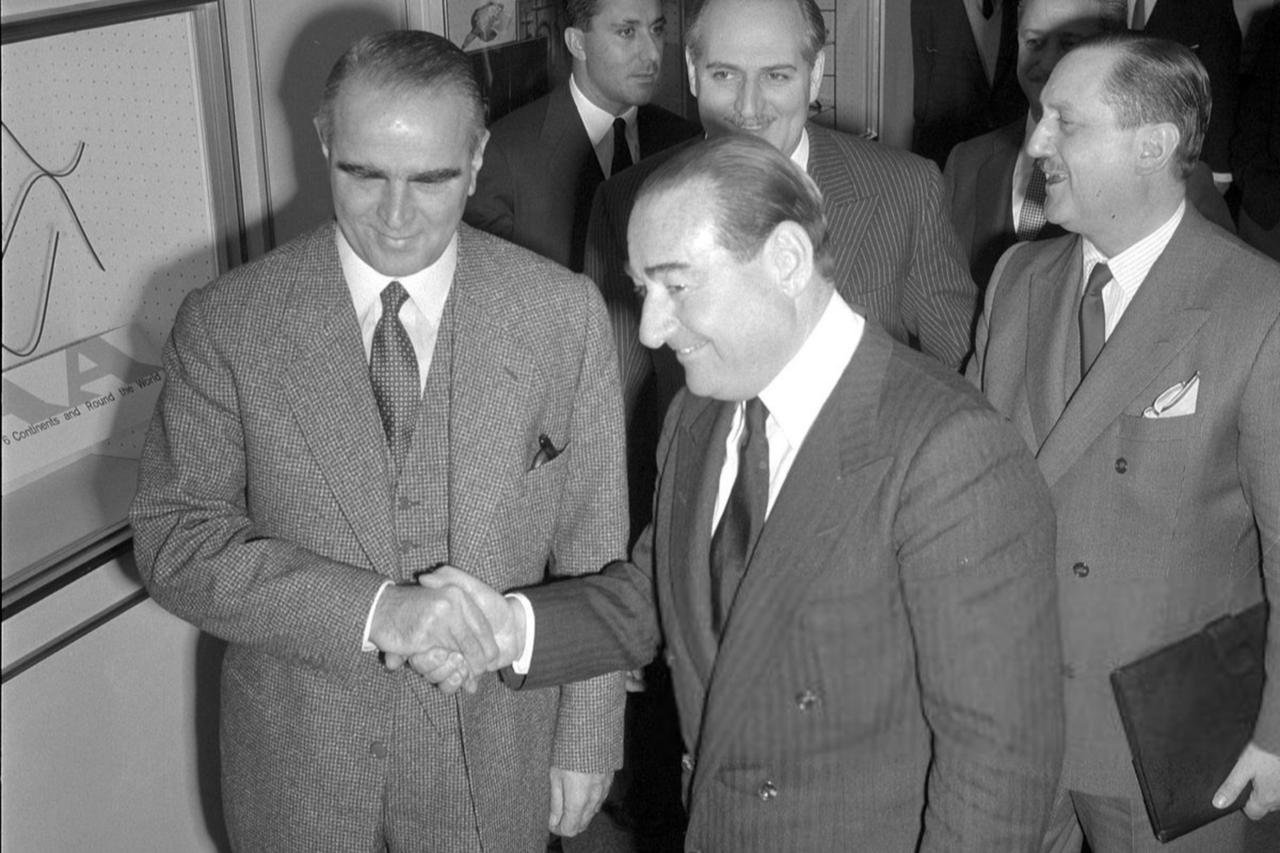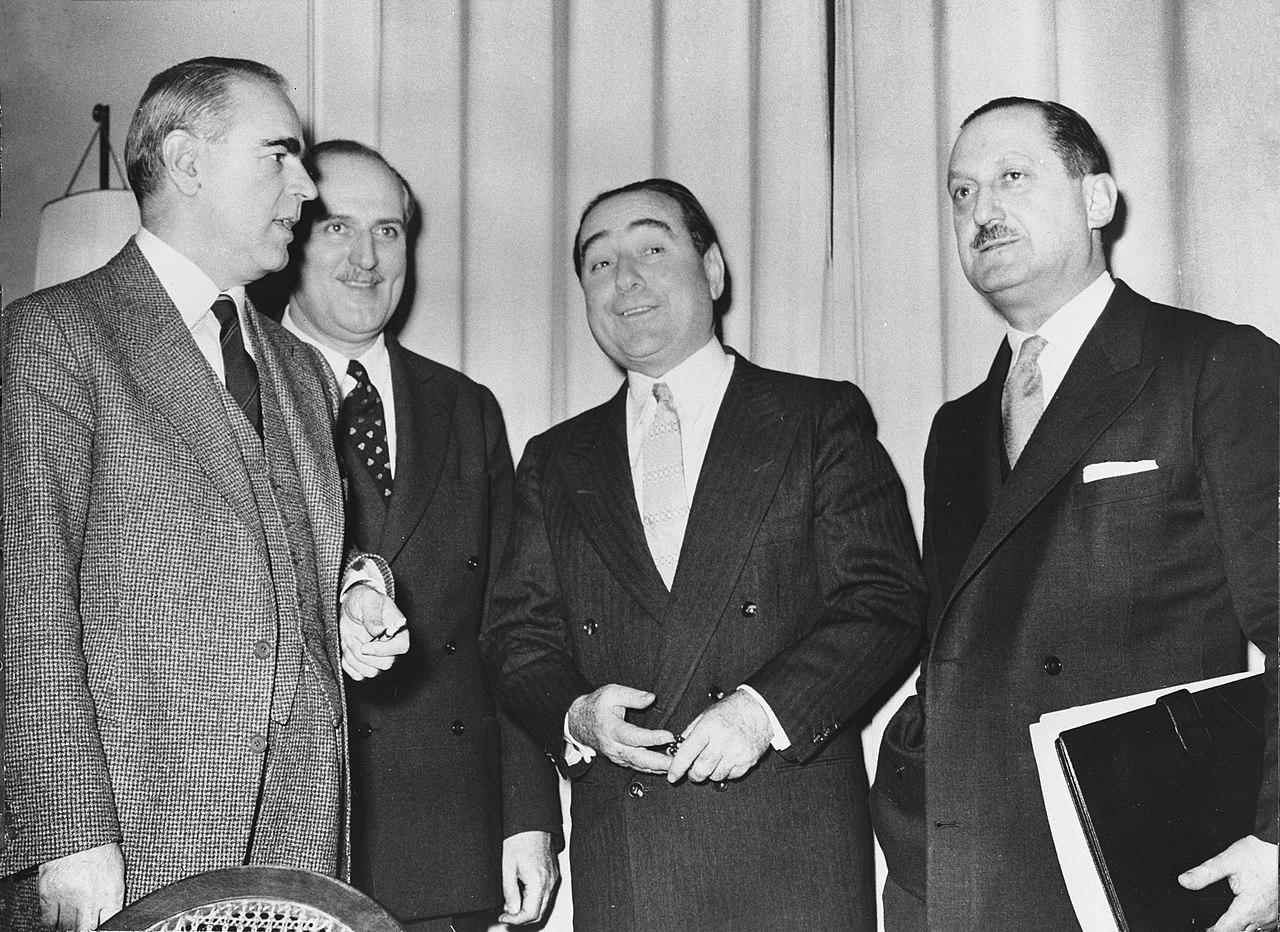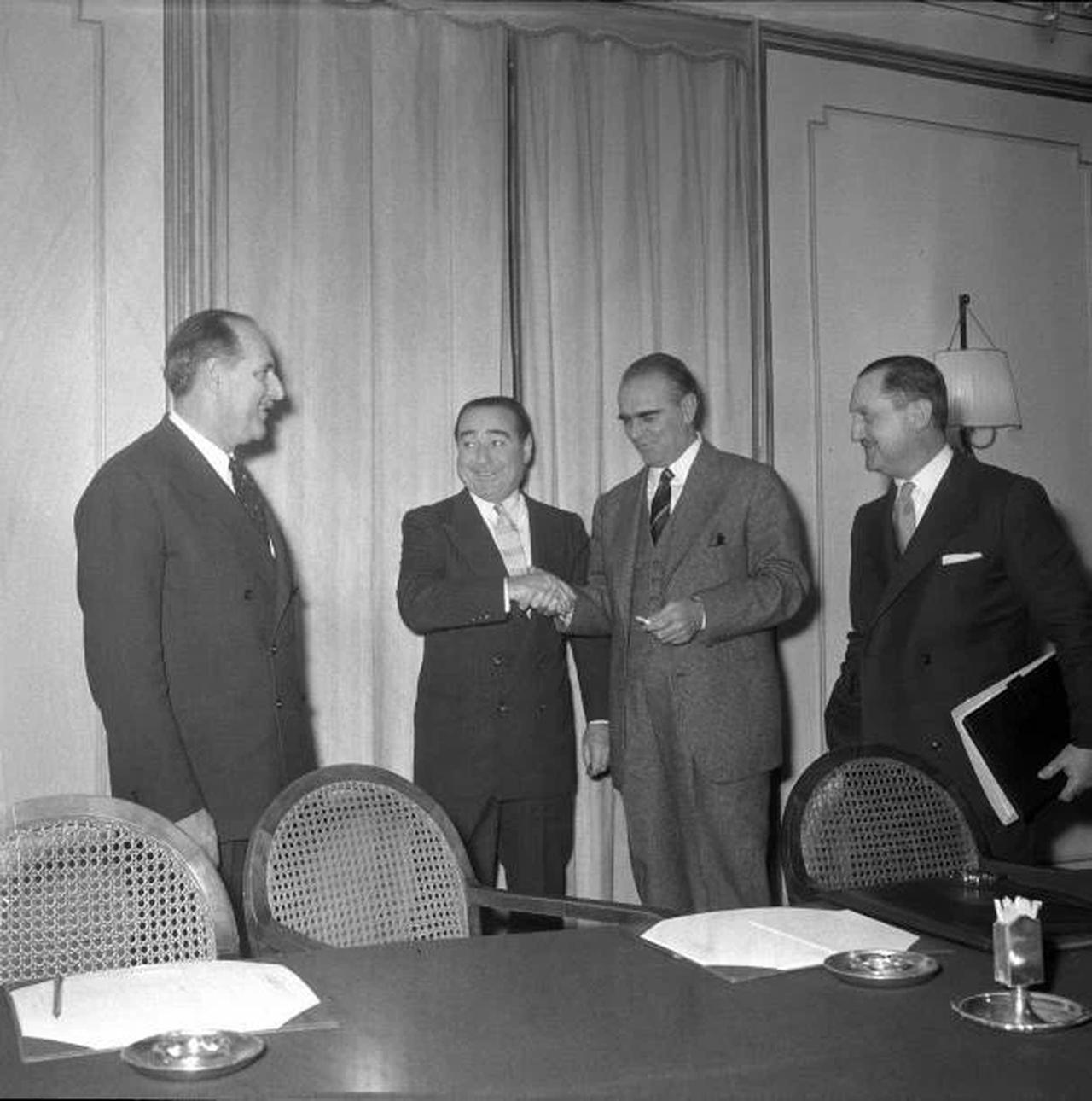
As relations between Türkiye and Greece periodically tightened over Cyprus in the 1950s, the two prime ministers—Adnan Menderes in Ankara and Konstantinos Karamanlis in Athens—built a working friendship that helped stop crises from spinning out of control.
At one meeting, Menderes quipped about the “odd twist of fate” that Karamanlis’ surname sounded like "from Karaman" in Turkish, while Karamanlis shot back that Menderes was “Meandros” in Greek—two leaders, two names that crossed languages, and one uneasy neighborhood. The exchange underlined how symbols can both divide and connect two neighboring societies.
Despite the myths that later took root, neither man’s heritage matched the jokes. Karamanlis, born in 1907 in Serez (Serres), came from a family that had lived in Greece for generations; his father had been among the early figures in a Greek uprising in Ottoman-era Macedonia.
The family had no connection to the central Anatolian city of Karaman or to the Karamanli Greeks—Turkish-speaking Orthodox Christians from that region. Similarly, Menderes’ background did not make him “Greek by origin,” despite his name sounding Hellenic.

Karamanlis entered politics as a young lawyer, aiming high. His first exile began during the German occupation, when he took refuge in Türkiye and then moved on to Egypt.
Back home, his breakthrough came with a 10-year first term as prime minister from 1955 to 1963, a period remembered in Athens for rapid development that stamped his name on postwar Greek politics.
As the Cyprus question flared, Karamanlis opposed Enosis—the movement to unite Cyprus with Greece—and in 1958 reached an agreement with Menderes on the Zurich formula that paved the way for the Republic of Cyprus with Turkish Cypriot participation in governance.
Enosis sought union with Greece; the Zurich Agreement created a power-sharing state; and EOKA was a Greek Cypriot terrorist group pursuing Enosis.
Karamanlis paid a political price at home, facing accusations that he had “sold Cyprus.” In private moments, as violence rose on the island, he is recalled as asking why Turks and Greeks could not find common ground as neighbors who shared civilizational ties. “We are an intertwined society,” he said, urging both sides to keep the friendship alive.

Karamanlis spent the years from 1963 to 1974 in voluntary exile. When Turkish troops landed on Cyprus in 1974—an intervention Ankara calls the Peace Operation—and the Enosis-backing junta in Athens collapsed, he returned three days later to a mass welcome and took on the role of restoring democratic politics.
From his first premiership onward and even after his death, parts of the Turkish press repeatedly described Karamanlis as “Karamanli” or “of Turkish origin.” The pattern resurfaced when his nephew, Kostas Karamanlis, became prime minister in 2004, prompting headlines that Greece had a “leader from Karaman” as leader. At times, similar claims also touched other Greek figures—such as casting a president born in the Peloponnese as “from Trabzon”—while, conversely, Turkish public figures disliked by nationalist commentators were labeled as Greek, Jewish, Armenian or "turncoat." In this narrative, “betrayal” ceased to be a political choice and was reframed as something innate and unchangeable.
The leaders’ light-hearted exchange about names—from Karaman versus Meandros—did not prove shared ancestry. It did, however, hint at how language and identity in this corner of the Mediterranean have long overlapped. In the 1950s, the ability of Menderes and Karamanlis to sit down, talk frankly and sign on to a compromise over Cyprus helped hold a fragile peace, even as louder claims about who belonged where swirled around them.